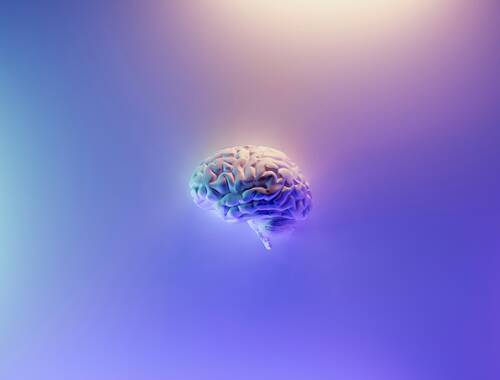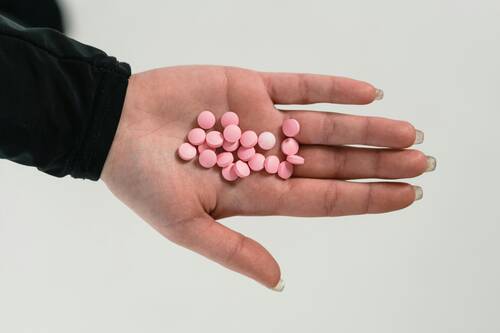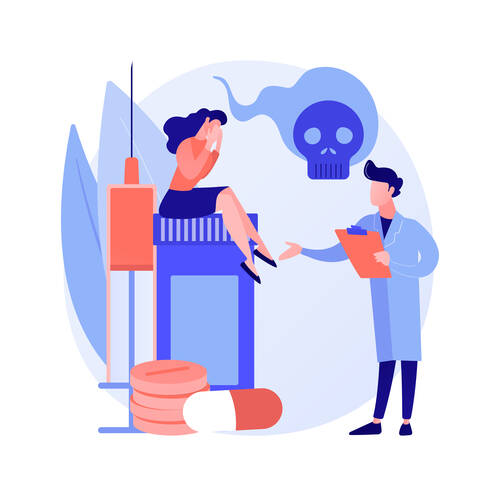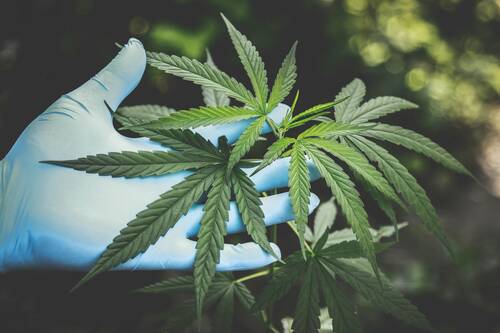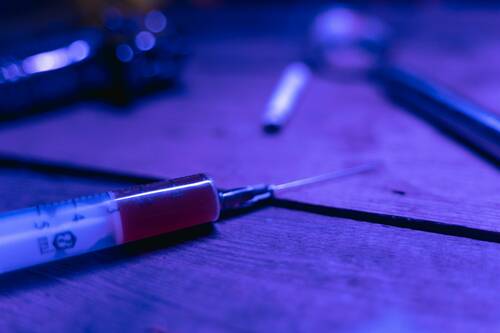Addiction Recovery and Brain Health: The Role of Sober Living in Neurological Healing
The Brain’s Recovery Process After Addiction
Substance use alters the brain’s reward system by overstimulating dopamine production, leading to cravings and dependency. Prolonged use also damages the prefrontal cortex, which governs rational thinking and impulse control. Even after stopping substance use, the brain needs time to repair these functions, and the right environment is key to facilitating this process. Early recovery is often marked by post-acute withdrawal syndrome (PAWS), which can include mood swings, anxiety, and cognitive fog. Research shows that a stable living environment can help reduce these symptoms by providing consistency and reducing exposure to triggers. Without external stressors like unsafe housing or exposure to substance use, the brain can focus on healing neural pathways and restoring equilibrium. (more…)Hills Recovery: The Healing Power of Being Heard
 For many who turn to alcohol or drugs, the deeper problem lies in feeling ignored or misunderstood.
In this heartfelt video segment, Vanessa highlights, “Most people who turn to alcohol and drugs to cope… they’ve never really had a sounding board.” This statement captures the profound loneliness that can exacerbate addictive behaviors.
When individuals finally encounter a place where sharing is encouraged and valued, the impact can be transformative. The weight of shame and isolation begins to lift when someone feels truly listened to. This newfound sense of validation can, in turn, become the catalyst for more profound emotional healing.
(more…)
For many who turn to alcohol or drugs, the deeper problem lies in feeling ignored or misunderstood.
In this heartfelt video segment, Vanessa highlights, “Most people who turn to alcohol and drugs to cope… they’ve never really had a sounding board.” This statement captures the profound loneliness that can exacerbate addictive behaviors.
When individuals finally encounter a place where sharing is encouraged and valued, the impact can be transformative. The weight of shame and isolation begins to lift when someone feels truly listened to. This newfound sense of validation can, in turn, become the catalyst for more profound emotional healing.
(more…)Understanding Insurance and Addiction Treatment
Drafting a well-informed appeal letter is often the first step in challenging a denial. Your appeal should include evidence of...
UCSD Study Finds Secondhand Cannabis Smoke A Significant Risk for Children
Cannabis May Have Long-Lasting Effects on Working Memory
Drug Detoxification Process: What Happens in the Body?
What is Drug Detoxification?
Drug detoxification, or detox, is the process by which the body eliminates the harmful substances accumulated through drug use. Detoxification isn't just about stopping drug intake; it's the natural, biochemical process that the body undergoes to clear these substances from the bloodstream and tissues, restoring balance. While detox can be done at home in some cases, medical supervision is often essential, especially when withdrawing from substances like alcohol, opioids, or benzodiazepines. Withdrawal symptoms can range from mild to life-threatening, depending on the drug, the duration of use, and the individual's health. (more…)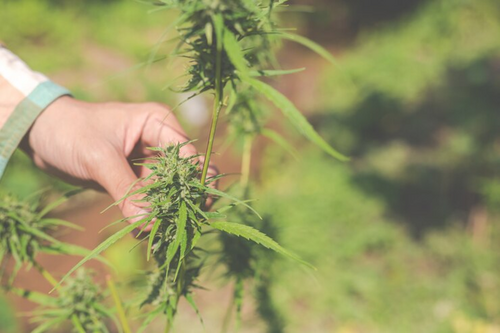 CBD and cannabis have been at the center of much talk about their therapeutic potential in recent years. As the benefits of these natural compounds become unveiled through more research, more individuals embrace them as a natural remedy for various health conditions. Once shrouded with different misconceptions, the medical community is exploring CBD and cannabis because of their potential effects on the body and mind. This article discusses the science behind these compounds, highlighting potential advantages while considering the role they can play in promoting health and well-being.
(more…)
CBD and cannabis have been at the center of much talk about their therapeutic potential in recent years. As the benefits of these natural compounds become unveiled through more research, more individuals embrace them as a natural remedy for various health conditions. Once shrouded with different misconceptions, the medical community is exploring CBD and cannabis because of their potential effects on the body and mind. This article discusses the science behind these compounds, highlighting potential advantages while considering the role they can play in promoting health and well-being.
(more…)Columbia University Documents Relationship Between Medical and Recreational Cannabis Laws and Opioid Use
What Types of Rehabs Are Out There, and How Do You Choose the Right One?
Patient Portal Discussions about Cannabis are Primarily Driven by Patient Interest in Use Following Medical Legalization in Pennsylvania
 Vishal A Shetty, MS, PhD Candidate
Center for Pharmacy and Innovation Outcomes, Geisinger
University of Massachusetts Amherst
MedicalResearch.com: What is the background for this study?
Response: With more U.S. states moving toward the legalization of medical and recreational cannabis, recent studies have explored electronic health record (EHR) documentation to understand the nature of cannabis use among patient populations. However, these efforts have not been extended to patient portal messaging, which allows patients to describe health-related behaviors in ways that may not be sufficiently captured in standard EHR documentation.
The primary objective of this study was to identify patient and provider secure messages that discussed cannabis and contextualize these discussions over periods prior to and after its legalization for medical purposes in Pennsylvania.
(more…)
Vishal A Shetty, MS, PhD Candidate
Center for Pharmacy and Innovation Outcomes, Geisinger
University of Massachusetts Amherst
MedicalResearch.com: What is the background for this study?
Response: With more U.S. states moving toward the legalization of medical and recreational cannabis, recent studies have explored electronic health record (EHR) documentation to understand the nature of cannabis use among patient populations. However, these efforts have not been extended to patient portal messaging, which allows patients to describe health-related behaviors in ways that may not be sufficiently captured in standard EHR documentation.
The primary objective of this study was to identify patient and provider secure messages that discussed cannabis and contextualize these discussions over periods prior to and after its legalization for medical purposes in Pennsylvania.
(more…)Exploring The Benefits Of Group Therapy For Addiction Recovery
One of the primary roles of a facilitator or therapist is to steer the conversation in a positive direction. They...
How Sleep Plays a Critical Role in Mental Health and Addiction Treatment
Sleep is not just a time for rest but an important part of mental health and addiction recovery. Indeed, the...
Unlocking Your Potential: Strategies for Remaking Your Life After Addiction
Establishing a Supportive Network for Lasting Change
Surrounding oneself with a positive and encouraging support network is invaluable during the recovery process. The journey can be laden with challenges, and having reliable individuals, such as family, friends, and mentors – who offer understanding and support makes a considerable difference. These relationships create a safety net, reducing feelings of isolation and providing motivation on difficult days. Joining a community of peers who have undergone similar experiences can be tremendously reassuring. Participation in group therapy or support meetings facilitates shared experiences and strategies for coping with the rollercoaster of emotions and stressors. Such camaraderie not only aids in prevention of relapse but also enhances the sense of belonging and purpose in one’s transitional phase. Effective support networks extend beyond personal relationships. Associations with a professional team, including therapists, counselors, and medical professionals, can ensure that individuals receive the guidance and care they need for their unique situations. Engaging with a Texas drug and alcohol rehab can connect one with an informed community invested in their recovery success. (more…)Transforming Lives with Professional Addiction Recovery Services: A Holistic Path to Healing
- If you or someone you know is struggling or in crisis, help is available. Call or text 988 or chat at org. To learn how to get support for mental health, drug or alcohol conditions, visit FindSupport.gov. If you are ready to locate a treatment facility or provider, you can go directly to FindTreatment.govor call 800-662-HELP (4357).
- S. veterans or service members who are in crisis can call 988 and then press “1” for the Veterans Crisis Line. Or text 838255. Or chat online.
- The Suicide & Crisis Lifeline in the U.S. has a Spanish language phone line at 1-888-628-9454 (toll-free).
- Addiction recovery requires a comprehensive and personalized approach.
- Holistic healing practices can greatly enhance recovery outcomes.
- Data and research suggest that integrated treatment plans are most effective.
- Understanding Addiction
- The Importance of Professional Help
- Holistic Healing Methods in Recovery
- Benefits of an Integrated Approach
- Latest Research and Trends in Addiction Recovery
- Building a Strong Support System
- Future of Addiction Recovery
What Types of Addiction Can Be Treated in Utah’s Intensive Outpatient Programs?
- If you or someone you know is struggling or in crisis, help is available. Call or text 988 or chat at org. To learn how to get support for mental health, drug or alcohol conditions, visit FindSupport.gov. If you are ready to locate a treatment facility or provider, you can go directly to FindTreatment.govor call 800-662-HELP (4357).
- Veterans or service members who are in crisis can call 988 and then press “1” for the Veterans Crisis Line. Or text 838255. Or chat online.
Key Takeaways
- IOPs in Utah treat various substance use and behavioral addictions
- Treatment combines counseling, group therapy, and educational components
- Programs offer flexibility to suit different recovery needs and lifestyles
Physical Responses to Emotional Trauma: How Your Body Reacts
 Let’s face it—life is unpredictable, and the likelihood of encountering problems that can be traumatizing are never zero. Although emotional trauma is commonly associated with mental health, symptoms can occur beyond the brain too. Whether it be surviving a car crash or experiencing abuse, the human body will tend to display an array of physical symptoms as a response to emotional trauma developed from highly stressful events. With 70% of American adults experiencing a traumatic event during their lifetime, exploring the physical responses that signify emotional trauma is an important conversation to have.
Let’s face it—life is unpredictable, and the likelihood of encountering problems that can be traumatizing are never zero. Although emotional trauma is commonly associated with mental health, symptoms can occur beyond the brain too. Whether it be surviving a car crash or experiencing abuse, the human body will tend to display an array of physical symptoms as a response to emotional trauma developed from highly stressful events. With 70% of American adults experiencing a traumatic event during their lifetime, exploring the physical responses that signify emotional trauma is an important conversation to have.
What is Trauma?
Trauma is a long term emotional response to severely stressful events that can physically, emotionally and mentally overwhelm the affected person. Trauma can significantly affect our daily lives through our sense of self, safety, and ability to manage our emotions and relationships. In fact, traumatic events can lead to post-traumatic stress disorder (PTSD); a mental health condition that can develop after a traumatic event. Statistics highlight that about five out of every 100 adults in the United States have PTSD in any given year. Women are also more likely to develop PTSD than men. This is partly due to the kinds of traumatic events that women are more likely to encounter, such as sexual assault. (more…)Hope, Healing, and Health: What Happens at an Alcohol Rehab
The First Step: Admission and Assessment
The journey begins with an initial assessment. You might be wondering, why is this necessary? Well, everyone’s experience with alcohol addiction is different. The team needs to know your history, your health, and your personal struggles with alcohol. This isn’t about judging you; it’s about understanding you. During this stage at your chosen alcohol rehab, you'll meet with medical professionals or counsellors who’ll ask questions about your drinking habits, physical health, and mental well-being. They’ll also screen for any underlying conditions, like anxiety or depression, which can often go hand-in-hand with addiction. It’s a chance to build a picture of what support you need. This is also where your treatment plan takes shape. Think of it like a roadmap tailored specifically to you. Whether you need a medically supervised detox, therapy sessions, or ongoing support, the team will plan it all out. (more…)7 Reasons People Choose Drug Rehab and Succeed in Recovery
1. A Fresh Start with Professional Support
One of the biggest reasons people turn to the likes of this drug rehab in Northern California is for expert guidance. Addiction is complex, and navigating recovery alone can feel overwhelming. Rehab centers offer a team of trained professionals—therapists, counselors, and medical staff—who know how to address both the physical and emotional challenges of addiction. Having this kind of specialized care isn’t just helpful; it’s life-changing. You’ll have a plan tailored to your specific needs, ensuring that no aspect of recovery is overlooked. When you’re dealing with something as serious as addiction, wouldn’t you want the best possible help? Rehab provides a safe environment where you can focus entirely on getting better, with experts who understand exactly what you’re going through. (more…)Navigating Chronic Pain Without Relapse: A Guide for Those in Recovery
Building a Strong Foundation: Communication with Healthcare Providers
Open communication with healthcare providers is essential in building a safe pain management plan. It’s important for individuals in recovery to disclose their addiction history to all medical professionals involved in their care. This disclosure enables healthcare providers to prioritize non-addictive treatments and monitor for potential relapse risks. Patients can also benefit from asking providers about alternative, non-opioid medications that can help manage their pain. Options such as anti-inflammatory drugs, muscle relaxants, or nerve-blocking medications can provide relief without the addictive risks. If opioids are unavoidable in some cases, discussing the lowest effective dosage and shortest duration can help minimize risks. (more…)Why Finding the Right Addiction Treatment Can Save Lives
Why Personalisation Matters in Addiction Treatment
Have you ever tried a one-size-fits-all approach to anything and thought, “This doesn’t feel right for me”? Addiction treatment works the same way. People struggling with addiction come from all walks of life, each with their own story, challenges, and needs. A generic program might tick some boxes, but personalised Asheville addiction treatment is where real change can happen. For example, someone with underlying mental health issues like anxiety or depression may need dual-diagnosis treatment, which addresses both the addiction and the mental health condition. Similarly, those with a history of trauma might benefit from therapies that specifically target those experiences. By tailoring treatment to the individual, the chances of long-term success increase dramatically. It’s not just about treating addiction—it’s about treating the person as a whole. (more…)CBD May Ease Anxiety With Fewer Risks That Can Come With THC
Discuss your use of CBD products with your health care provider. CBD has no known psychoactive effects but has potential...
Is Your Loved One Struggling From an Addiction? Everything You Need to Know About Dual Diagnosis
Natural Pain Relief Without Risks from Opioids
Many countries have been grappling with an opioid crisis, which has motivated patients to seek cannabis as a much safer alternative. Medicinal cannabis minimizes the risks of addiction associated with opioids due to misuse and gives no risks of an overdose. To obtain medicinal cannabis legally, there are options like medical marijuana cards you can obtain from providers such as Leafy Doc Mississippi. Regarding how cannabis works in terms of pain relief, cannabinoids like THC bind to receptors in the brain and the immune system, modulating the experience of pain. The endocannabinoid system engages with trauma states mainly on account of pain, mood regulation, and inflammation. However, for long-term relief, medicinal cannabis is viewed as a considerably safer alternative compared to opioids. (more…)Learn how tinctures and roll-ons can help you relax. Know their benefits, uses, side effects and how you can incorporate...
How CEOs and Entrepreneurs Deal with Mental Health and Addiction Problems
The Mental Health Crisis Among Leaders
The entrepreneurial journey is exhilarating but fraught with stress. Studies show that entrepreneurs are more likely to experience mental health challenges than the general population. According to research published in Small Business Economics, entrepreneurs report higher rates of anxiety, depression, and burnout. Similarly, executives often feel isolated, with the burden of responsibility leaving little room for vulnerability or support systems. Some of the key contributors to mental health struggles among leaders include:- Work-life imbalance: Long hours and the constant drive for success often leave little time for family, hobbies, or self-care.
- Financial pressure: Entrepreneurs frequently face financial uncertainty, which can exacerbate stress and anxiety.
- Decision fatigue: The relentless demand for critical decisions can lead to mental exhaustion.
- Isolation: Many CEOs and founders feel they cannot share their struggles with others, fearing it might undermine their authority or brand.
The Causes of Alcohol Addiction Explored Through Key Theories
Building a Support System for Successful Rehab and Recovery
- Accountability – Your support system helps you stay true to your recovery goals by keeping you on track.
- Encouragement – Positive reinforcement can push you through tough times, reminding you why you started this journey.
- Emotional resilience – Supportive relationships provide a safe space to express fears, doubts, and triumphs.
- Practical help – Whether it’s attending appointments, providing a listening ear, or helping you establish a routine, your network can assist in concrete ways.
- A sense of belonging – Feeling connected to others who care about your success reduces loneliness and strengthens your resolve.
Cannabis Use Worsens Psychosis Risk in Some Young Adults
Post-Acute Withdrawal Syndrome (PAWS): What to Expect After Detox
What to Know About the Detoxing From Drug and Alcohol Dependence
Detoxing from addictive substances is a critical initial step in recovery from drug and alcohol dependence. During this stage, the body begins to clear itself of toxins, but the process can come with a range of intense withdrawal symptoms. Understanding these symptoms—and how they evolve from the acute to the post-acute phase—can help individuals prepare for the detox journey and know when to seek help.
Common Withdrawal Symptoms
The acute withdrawal phase typically occurs within hours to days after ceasing substance use and often includes severe physical and psychological symptoms as the body struggles to adapt without the substance. During this phase, common withdrawal symptoms include:- Anxiety and panic attacks: Heightened anxiety levels and even panic attacks are common as the central nervous system adjusts to the absence of the substance.
- Nausea and Vomiting: These symptoms often accompany withdrawal, especially for those dependent on opioids and alcohol.
- Sweating and Shaking: As the body tries to restore balance, sweating and shaking can be intense, particularly for individuals detoxing from alcohol or benzodiazepines.
- Muscle Aches: Body aches and muscle cramps may occur as the body adjusts to functioning without the substance.
- Insomnia or Impaired Sleep: Insomnia is common, with some individuals experiencing vivid dreams or night sweats as their sleep cycles are disrupted.
While these acute withdrawal symptoms generally subside within a week, recovery is rarely immediate. Instead, individuals often transition into a post acute withdrawal period, where symptoms like mood swings, fatigue, and cravings may persist for months, creating what is known as a protracted withdrawal experience. (more…)


